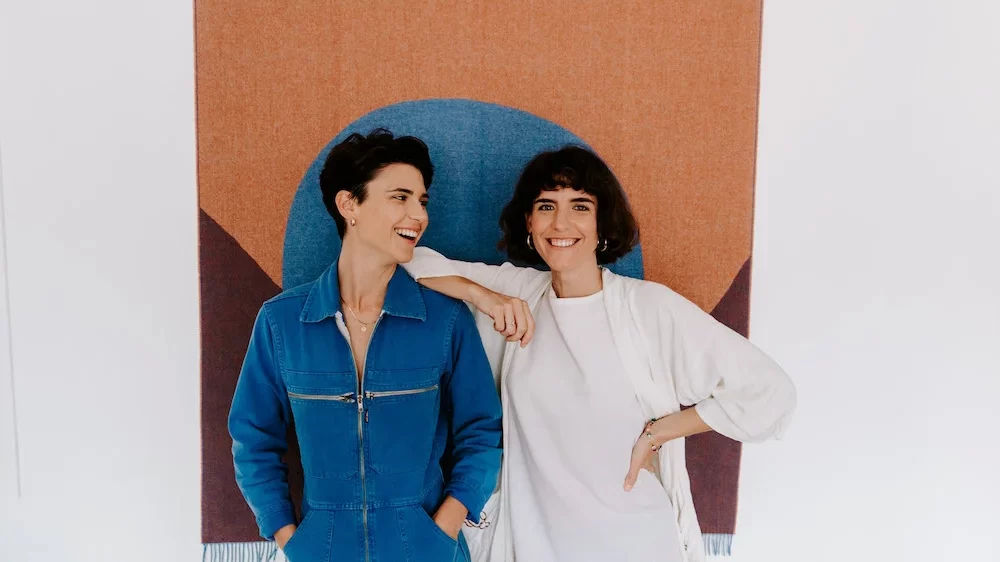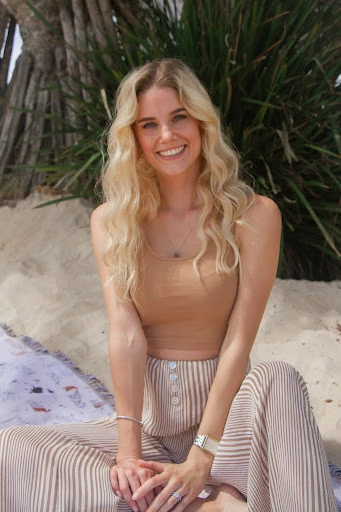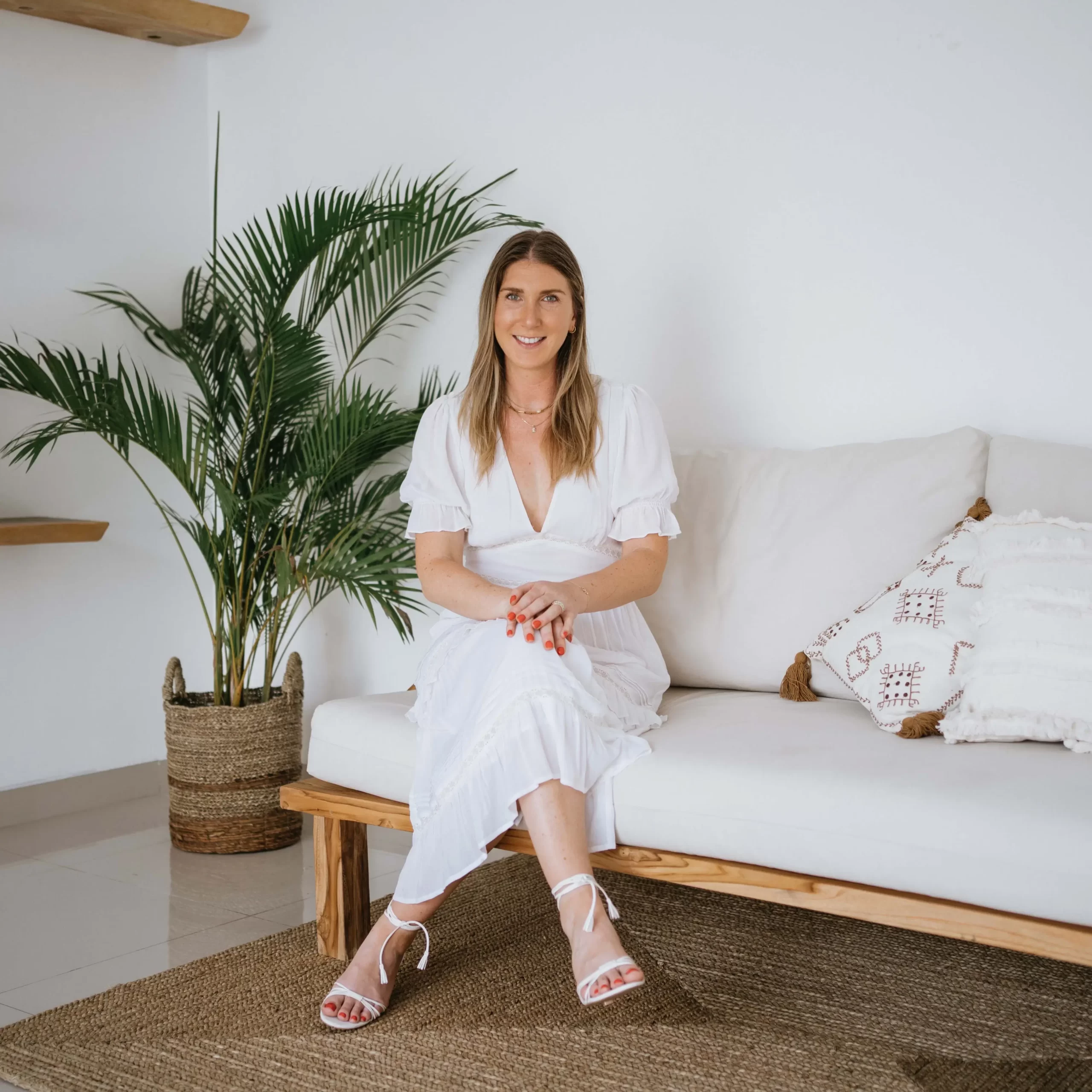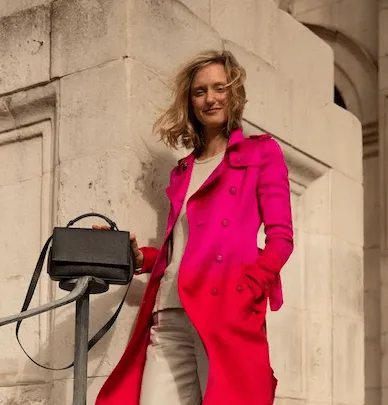
Vegan brand LUXTRA is shaking up the luxury bag sector with its vegan leather bags, proving that plant-based can be sustainable and luxurious.
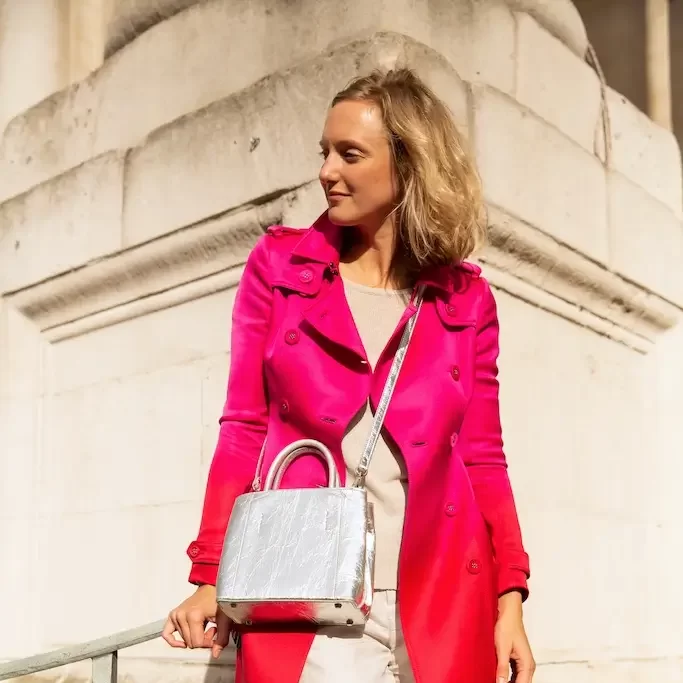
Join us as founder Jessica Kruger takes us behind the scenes of her luxury vegan bag brand LUXTRA.
Hello! Who are you, what brand do you run and what kind of products do you create?
Hi there. I’m Jessica Kruger. Sydney-sider at heart, but based in London. I am the founder of LUXTRA: a sustainably-minded fashion accessories brand based in London.
We use the most innovative plant-based materials (made from apple, cactus, pineapple) and we are a proudly-certified B Corp.
Why did you start LUXTRA? What inspired you?
It all started in 2012. My mother took a sabbatical from her work to move, at the age of 55, to the United States to work on an animal farm sanctuary. She left my Dad and the dog in Sydney for 6 months! I watched a documentary to understand what she was up to and one hour to the next my life had changed: I became a vegan on the spot and basically found my purpose in life.
2012 was a time when it really wasn’t cool to mention the “v” word, but I cared so much about encouraging people (without preaching) to move away from animal-based foods and products. So by 2014 I had opened a vegetarian restaurant in central London called ETHOS, with the aim of creating delicious food, in a beautiful setting. It was so wonderful to see how Londoners embraced it. I sold that business in 2016 and started working on LUXTRA soon after. The same drive - to reduce the amount of cruelty and animal suffering in the world - has been with me ever since.
**Can you tell us about the innovative materials you use? **
For sure - they’re really exciting!
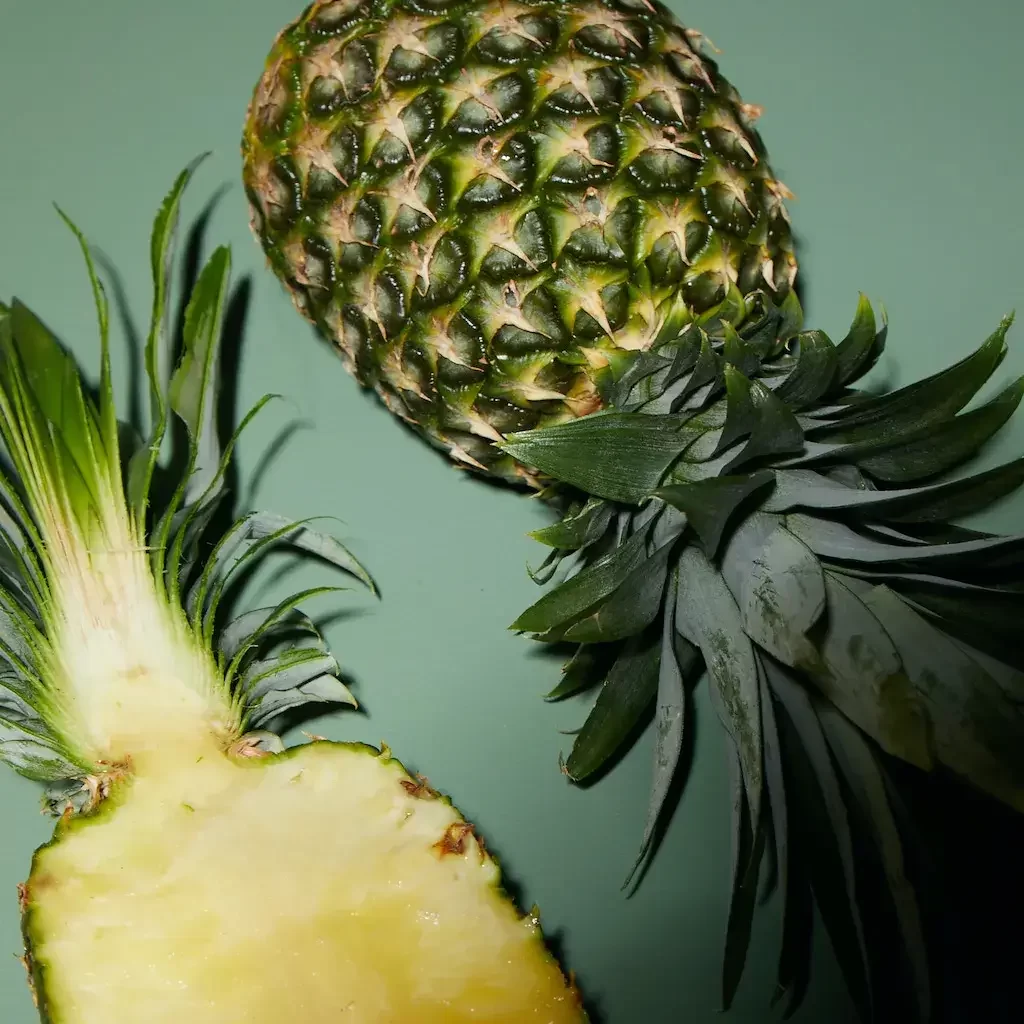
At present we work with materials that have a fruit/vegetable component, most of which are from waste streams.
Some of the materials are made from pineapple leaves (Pinatex), some are made with apples (AppleSkin), others are made from cactus (Desserto).
We’ve also experimented with corn and mango-based materials and my apartment is full to the brim with all kinds of weird and wonderful material swatches.
Why have you chosen to use bio-based vegan leathers instead of traditional plastic-based leathers?
Just trying to do our bit to help the planet! Bio-based vegan leathers are not perfect (many still contain a percentage of plastic, because this makes them more durable) but it’s so exciting to see these materials develop and improve to become more eco-friendly.
Now that there’s a lot more interest and money being invested, the progress is moving at a much quicker rate and there are new materials entering the market that really are game changes because they have no added PU (polyurethane - the plastic “binder” I alluded to above).
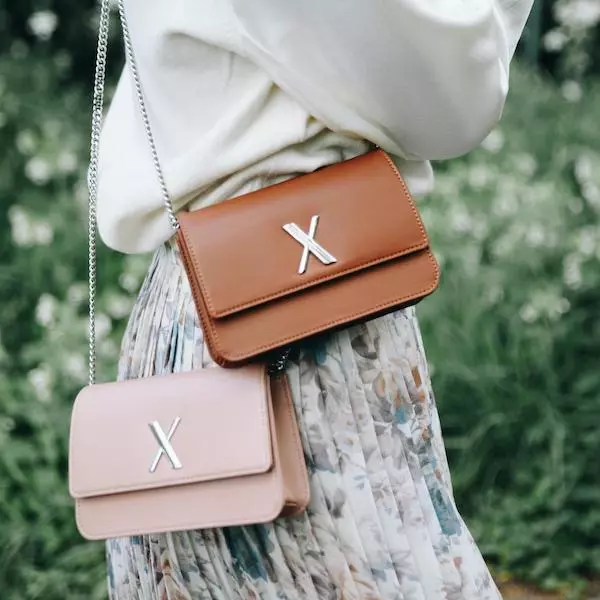
Can you tell us a little about your manufacturing process, and how you’ve selected the factories you work with?
I’ve actually written a four-part series about Luxtra’s manufacturing process, which you can find in our newsletter archive, here. However, in a nutshell the process goes like this: I design a bag or maybe a wallet.
Once I have sketches, I need to send technical drawings to my manufacturer. These include the dimensions as well as details like stitch size, colour of lining, what type of zip or magnet to use etc.
Everything is specified in the document, called the “tech pack”. The manufacturers produce a first prototype (which we call a “sample”), and then it’s back and forth until you have a final version everyone is happy with. From there you place a production order, meaning that you order say, 100 units of black backpacks, 100 units of navy backpacks etc etc.
I’ve found my manufacturers through word of mouth, searching online and via LinkedIn.
What were the main challenges and learnings you had when you founded LUXTRA? How do things compare today to when you first started?
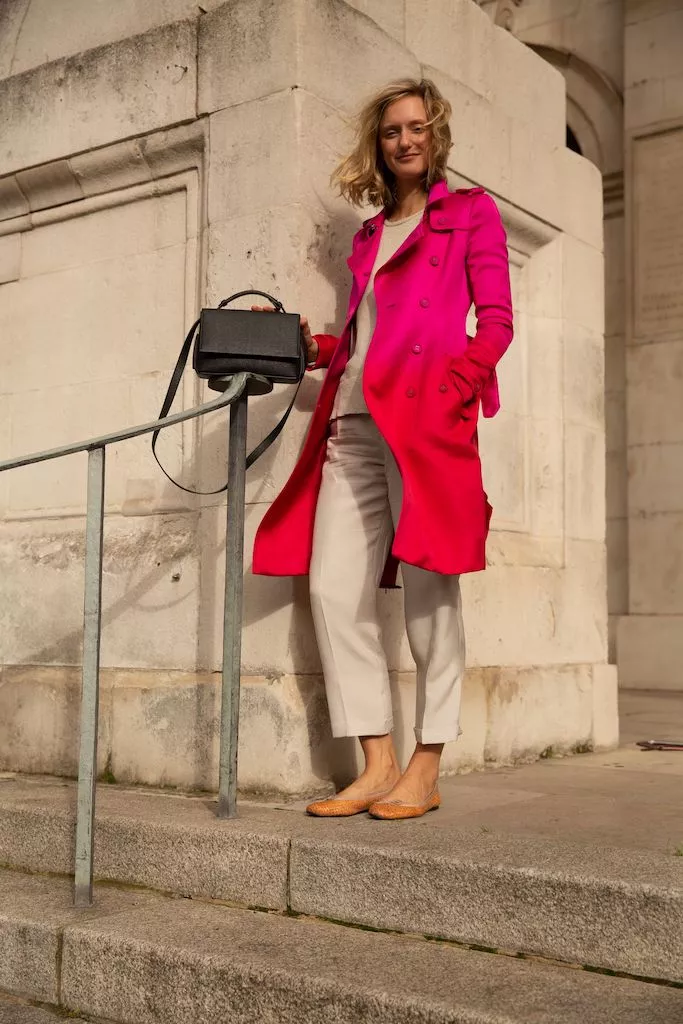
I had never worked in the fashion industry or been involved in the manufacturing of a physical product - so my learning curve when starting LUXTRA was almost vertical.
The biggest challenges were learning how to manufacture a product, and marketing. Marketing is still my biggest challenge: fashion i’s a hugely competitive industry, and you’ve got to be razor sharp and have a great strategy to show your product is desirable and worth people parting with their hard earned cash. Marketing feels just as hard today as when I first started.
In your eyes, what’s your biggest achievement or milestone so far?
I’m really proud that LUXTRA is starting to be seen as a leading brand in the vegan/plant-based fashion space. We’re small but we’re punching well above our weight. I’m really proud of that.
Becoming a certified B Corp in April 2020 was also a really big milestone - I always describe B Corps as companies that talk the talk, and walk the walk when it comes to sustainability and living by their ethics.
How do you ensure your company stays true to your mission as you grow?
In a way it’s built into me - I’m someone who has an enormous amount of empathy, so I want to do best by everyone in our supply chain - but at the same time, it requires constant vigilance.
For example, we want to grow our business, and some potentially lucrative ways of doing that would be by putting our product into market places owned by some extremely large companies with questionable ethical standards.
As a team we talk about it internally, and I also talk about it with our customers and subscribers in my weekly newsletter. It’s great to hear feedback from our community on some of these decisions - their feedback is usually pretty decisive and makes sure we are listening to people outside our own four walls.
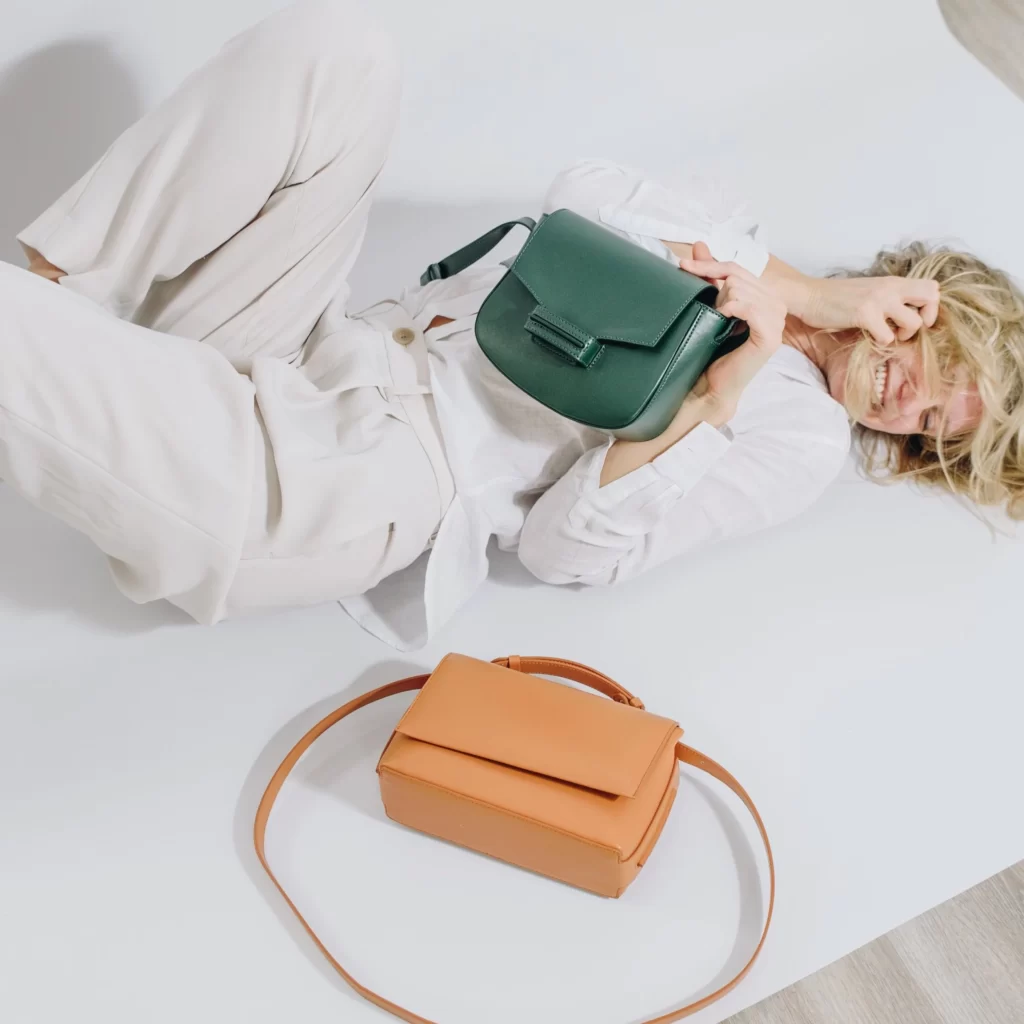
We love how transparent you are around your supply chain, especially around supporting women led businesses. Can you tell us why this is so important to you, and do you believe other brands should be doing more to be more transparent?
Oh thanks very much! Supporting fellow female-owned businesses is really important to me, and to us as a company.
Perhaps I’m jaded, but I see a lack of equality vis-a-vis gender almost everywhere. Like animal welfare, we champion women mainly because I think we can run businesses and organisations really well!!!
Do you have any advice for people looking to be more sustainable in their consumption habits and lifestyle?
My advice, for pretty much everything in life, is to simply start.
Maybe it’s reading one article online about fast fashion.
Maybe it’s going one day (or one meal!) without meat or fish.
Maybe it’s not buying that dress/pair of shoes/earrings.
Maybe it’s not taking an extra plastic bag for your tomatoes/apples/oranges at the supermarket.
Just do one thing.
Jessica Kruger
Open your mind and opportunities will start to emerge.
It’s really fascinating how such small things can unleash a bigger impact over time.
Have you tried a product from another sustainable/ethical brand that you think our audience should know about?
Most of my money goes into my business, so I don’t buy a lot of things, BUT I’m am an absolute reusable coffee cup devotee. I’ve tried a few brands and have settled on ECOFFEE CUP as my favourite. I ADORE the colour range (I have mint green and black, but have now seen they have a fabulous yellow!).
Everytime I go for a coffee and see all the people using throw-away cups, it makes me very sad. I sometimes buy these coffee cups as presents for people. It’s a definite “hint hint, nudge nudge” type of present.
What does the future look like for your brand?
It’s a really exciting time as we’re about to embark upon our first funding round. So this will be a big focus until the end of 2022. I’ve been funding LUXTRA myself since 2017, which has been great in getting us so far.
I feel however that I want to make a bigger impact in the industry - to demonstrate on a wider scale, that it IS possible to make beautiful, cruelty-free products and products that are more sustainably-minded.
We’re also really excited to start working with the latest materials on the market that are PU-free, along with introducing some new categories. Exciting times ahead!!
*We hoped you found this Q&A interesting! If you have any questions about LUXTRA, leave a comment below, or you can learn more about Jessica’s brand by visiting LUXTRA online. *
If you enjoyed this behind the scenes look, join us for more founder Q&A’s with brands like Baabuk, Presca, Floral Street, and more sustainable brands.

